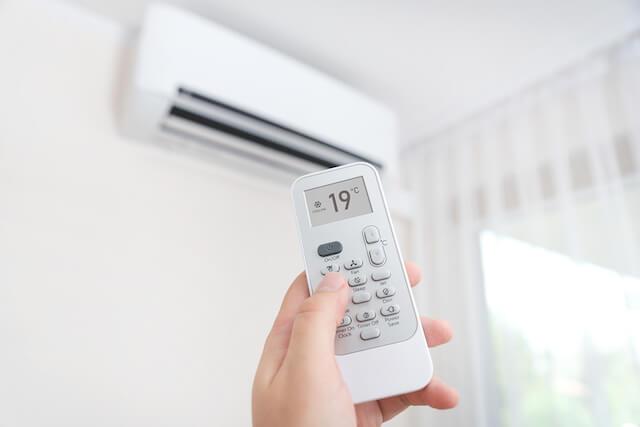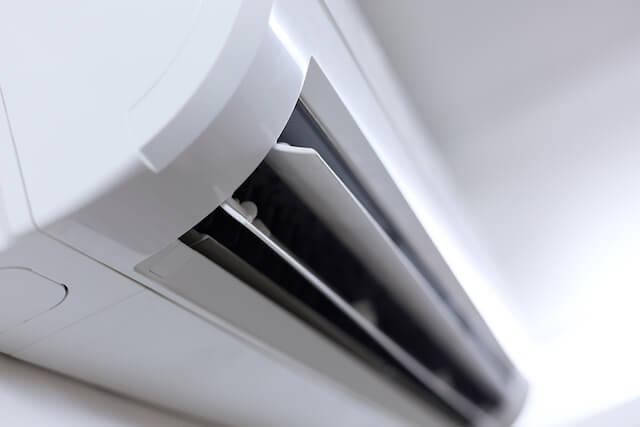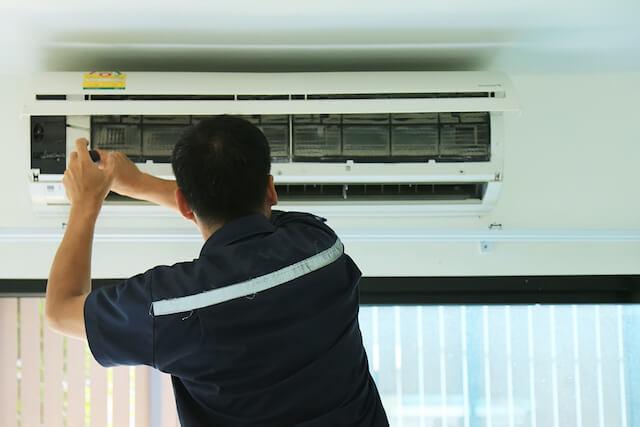
Air conditioners are your best friends during sunny weather. As the temperatures rise outside, these appliances make it possible to keep cool while indoors. But, while air conditioners are certainly useful, they may have a couple of drawbacks as well.
For starters, did you know that your air conditioner can trigger allergies in some people? In rare cases, a condition known as cold urticaria can cause patients to be allergic to cold weather – whether it’s outside or in the office when the air conditioner is turned on. However, in most cases, most people aren’t truly allergic to the air conditioner itself – they’re allergic to what’s in the air or inside the air conditioner.
Why Air Conditioners Can Make Allergies Worse
Dust, dirt, mould, mildew, pet dander, as well as bacteria and viruses, are all carried in the air, and in a closed environment, such as one with an air conditioner turned on, it’s very easy for such harmful particles to circulate and go from one person to another.
If you start to feel worse whenever your air conditioning unit is turned out, it is possible that there are several air-born allergens inside the vicinity, or in worse cases, inside the unit itself.
What You Can Do About Indoor Allergies
If you’re feeling unwell because of indoor air contaminants, you’re better off treating the problem itself as opposed to treating your illness to prevent your allergies from getting worse or from reoccurring.
These are some steps that you can take to minimise any allergies caused by airborne allergens that can be exacerbated in environments with air conditioning.
- Make sure to use HEPA filters for your air conditioning unit and replace them on a regular basis.
- Have the vents and ducts checked for dust, dirt, as well as mould and mildew buildup every now and then.
- Regularly clean your home to minimise dust and dirt buildup.
- Always clean out mould as soon as it appears. Leaving mould alone can cause it to multiply and spread to other areas of your home, including the air conditioning ducts.
- Keep the humidity inside your home in control. Humid environments can make for the perfect breeding ground for bacteria, viruses, as well as mould and mildew.
- Avoid letting any standing water or water-damaged materials to sit in too long. Wipe wet surfaces immediately as well. Leaving them be can encourage the growth of bacteria, mould, mildew, as well as dust mites.
- Invest in a quality air purifier that comes with a HEPA filter.
- Last, but definitely not the least, make sure that you schedule your air conditioner for regular cleaning.
As you can see, your air conditioner is very rarely the reason for your allergies. Most of the time, it’s what’s in the air that’s causing you to have watery eyes and a runny nose.
So long as your air conditioner receives regular aircon servicing in Singapore, they will be the least of your worries. You’re better off turning your attention to keeping your house or office clean. Also, make sure to follow our advice, especially when it comes to investing in a quality air purifier.
For those with asthma and allergies, an air purifier can also help significantly improve the quality of your life.
Sign up for our newsletter
Get the best content on user insights, design, and product management delivered to your inbox every week.
Share This Article
%253A%2BAircon%2BMould%253A%2BCauses%252C%2BPrevention%252C%2Band%2BCleaning%2BTips%2F01.jpg&w=3840&q=75)


